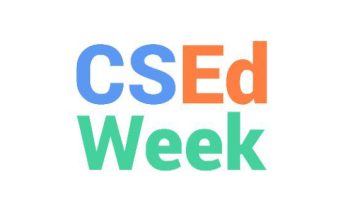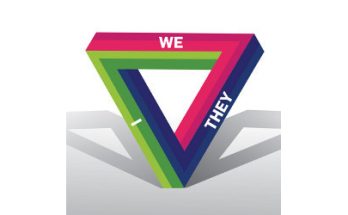“Toward Justice in Computer Science through Community, Criticality, and Citizenship”
Communications of the ACM, May 2022, Vol. 65 No. 5, Pages 42-44
Education
By Aman Yadav, Marie Heath, Anne Drew Hu
“Computer science education cannot fix its internal injustices and external harms to society if it aims only to broaden participation. Instead, institutional change is required.”
Neither technologies nor societies are neutral, and failing to acknowledge this, results at best, in a narrow view of both. At worst, it leads to technology that reinforces oppressive societal norms. The systemic biases and social hierarchies that influence our society also guide the design of computing technologies, resulting in harm and marginalization of vulnerable people within the tech industry and in broader society. We agree with Alex Hanna, Timnit Gebru, and others who argue individual harms reflect institutional problems, and thus require institutional and systemic solutions. We believe computer science (CS) as a discipline often promotes itself as objective and neutral. This tendency allows the field to ignore systems of oppression that exist within and because of CS. As scholars in educational psychology, computer science education, and social studies education, we suggest a way forward through institutional change, specifically in the way we teach CS. CS education must not only help students develop technical skills, but also frame computing within the context of society, with the potential to foster oppression or further justice.” In this column, we take a critical perspective toward CS education and argue for a justice-centered CS education that focuses on communities, criticality, and citizenship.
CS education has attempted to resolve injustices by broadening access to computing through expansion of course curricula, professional development, and technology. Governments and industry have spent billions of dollars to increase access to computing education across the U.S., from computational thinking to data science and now artificial intelligence. While there has been an increased representation of students from marginalized groups, issues that disproportionately harm vulnerable students (for example, too few highly qualified teachers, chronically underfunded schools, and an overemphasis on high-stakes testing) have not been addressed. Increasing access without addressing structural inequities has led to lower academic success for these groups of students. Only 52% of Black students and 61% of Hispanic students passed the AP CS Principles exam, compared to 73% of white students and 83% of Asian students. This suggests access is not enough to increase success in CS.
We strongly believe it is important to prepare young citizens in computing, and it is critical to our collective future; however, as society becomes increasingly digitized, we must go beyond increasing access. We must highlight how technologies used to facilitate and automate our daily activities can lead to further racialization and injustices. Given these issues, how should we teach computing that increases representation and success of marginalized students while also challenging the ways technologies and technology companies perpetuate and amplify racism, patriarchy, and ableism? In this column, we discuss how a focus on community, criticality, and citizenship help achieve these aims.
Community
We suggest one reason computer science courses fail societally marginalized students is because the curriculum remains disconnected from students’ lives and is not designed to serve them. Instead, it serves the aims of the tech industry by marketing CS as being important for getting a “good job” that can pull a person out of poverty while overlooking the systemic racism and classism that perpetuate a permanent underclass. Simply increasing access to computing without adequate support for teachers and centering students’ identities and cultures in the curriculum is just a veneer of broadening participation. [Emphasis added] Teaching Black girls to code without addressing the systemic racism and misogyny of CS results in the hiring—and subsequent firing—of Black women when they challenge the discriminatory and harmful effects of technologies (for example, Timnit Gebru was fired by Google for refusing to retract a paper that highlighted the risks of large language models.) The industry’s failure to consider the complex lived experience of marginalized people bleeds into a failure of curriculum.
About the Authors:
Aman Yadav is a professor in the College of Education at Michigan State University, East Lansing, MI, USA.
Marie Heath is an assistant professor in the School of Education at Loyola University Maryland, Baltimore, MD, USA.
Anne Drew Hu is a doctoral student in the College of Education at Michigan State University, East Lansing, MI, USA.
See also:
- “We read the paper that forced Timnit Gebru out of Google. Here’s what it says. The company’s star ethics researcher highlighted the risks of large language models, which are key to Google’s business.” By Karen Hao, published in MIT Technology Review, December 4, 2020.






